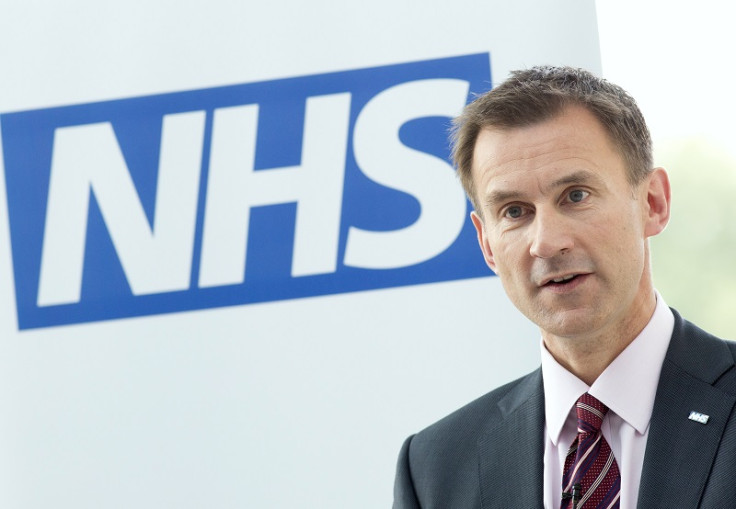TTIP: UK Government Confirms NHS Exemption Amid Public Backlash

The British government has told IBTimes UK that it has "no intention" of including the NHS in any free trade agreement between the European Union and the United States.
The remarks come in response to a poll which found that the majority of voters in marginal electorate constituencies want the government to exclude the National Health Service (NHS) from ongoing discussion around the Transatlantic Trade and Investment Partnership (TTIP).
The survey, organised by the trade union Unite and conducted by Survation, found that 68% of voters in 13 "battleground" seats would rather that the health service was off the TTIP agenda.
The British government has the opportunity to use a veto to exempt any public services from the Transatlantic Trade and Investment Partnership (TTIP), a fact confirmed to IBTimes UK by the EU's Trade Commissioner Karel De Gucht in a recent interview.
A spokesperson for the Department of Health has told this publication that the NHS is not up for discussion, saying: "We have no intention of allowing the TTIP to dictate the opening up of NHS services to further competition; and it will not do so. The NHS will always be free at the point of use for everyone who needs it."
The department has made its position clear to the European Commission, which it says has agreed that TTIP shouldn't reduce the ability of member states to make future decision about whether and to what extent to involve the private sector in the provision of public services.
Should TTIP come to pass, then, any healthcare provider that does business in the UK would still need to comply with UK standards and regulations, as laid out by the 1995 General Agreement on Trade in Services (GATs), the spokesperson says.
Calls for Clarity
The UK's trade and investment minister Lord Livingston has previously attempted to reassure voters that any agreement between the EU and the US would not result in the NHS being opened up to US investors.
Earlier this year, the British Medical Association said that its chair Mark Porter had received a letter from the minister assuring them that decisions over future NHS contracts would remain the concern of NHS commissioners.
Paul Laffin, the BMA's EU policy manager, said at the time: "No matter what is eventually agreed for the final text of the TTIP, the European Parliament can vote to reject the treaty, just as it did — overwhelmingly — with the anti-counterfeiting trade agreement, back in 2012."
Despite this, the clamour for David Cameron to publicly announce that the NHS and public services will be vetoed is out of bounds has been growing.
"The results prove that people firmly oppose the inclusion of the NHS as part of the trade deal. A majority of people even think that Cameron should use Britain's veto.
"We don't believe the empty promises coming from the bureaucrats in Brussels but Cameron could act today and protect our health service. David Cameron's silence is deafening. He is refusing to answer a very simple question. Are we going to exempt health from the EU US trade agreement?" said Unite's secretary general Len McCluskey in a statement accompanying the survey's results.
The survey quizzed 2,600 voters across 13 marginally-held Conservative seats over the inclusion of the NHS in TTIP. Of those asked, 64% said David Cameron should seek to exclude the NHS from the trade agreement altogether, while 54% want the Prime Minister to veto the agreement if necessary in order to safeguard the NHS.
Canadian Precedent
Despite the EU and Canada finalising an agreement that has been described as a "template for TTIP" on 6 August, the EU-US deal seems to be a long way from completion.
Disputes over the inclusion of financial services and the investor-state dispute settlement (ISDS) clause, which would protect the assets of investors but theoretically allow private corporations to sue sovereign governments for loss of earnings, have provided major stumbling blocks in recent months.
Some trade experts feel that the EU-Canada agreement – entitled Comprehensive Economic and Trade Agreement (CETA) – could even lead to further difficulties in getting TTIP over the finishing line.
"By giving opponents of ISDS in TTIP a concrete negotiation to oppose or raise concerns about, I think CETA is actually making the job of TTIP negotiators harder at the moment – without actually setting much of a precedent in terms of eliminating transatlantic barriers to trade," Dr Gabriel Siles-Brügge of the University of Manchester told IBTimes UK.
The EU is currently analysing the results of a public consultation into the inclusion of ISDS which attracted 150,000 responses. The analysis is due to be complete in November. Even before the consultation closed, De Gucht told this publication that the agreement would not be signed before its initial target deadline of the end of 2014.
"We will not reach an agreement by the end of this year for a number of reasons," he said in July. "One is that certainly at the end of this year there are mid-term elections in the US. There will be more opportunities do to it next year because then you are in the middle of the electoral cycle. I believe that the window of opportunity is next year. If we don't do it next year it could take much longer, but it's feasible, technically and politically."
The EU and US already account for 40% of world GDP and between them, have 800 million consumers. Negotiations over TTIP began last year in Northern Ireland, but discussions have been plagued by opposition from the general public and NGOs.
© Copyright IBTimes 2025. All rights reserved.






















